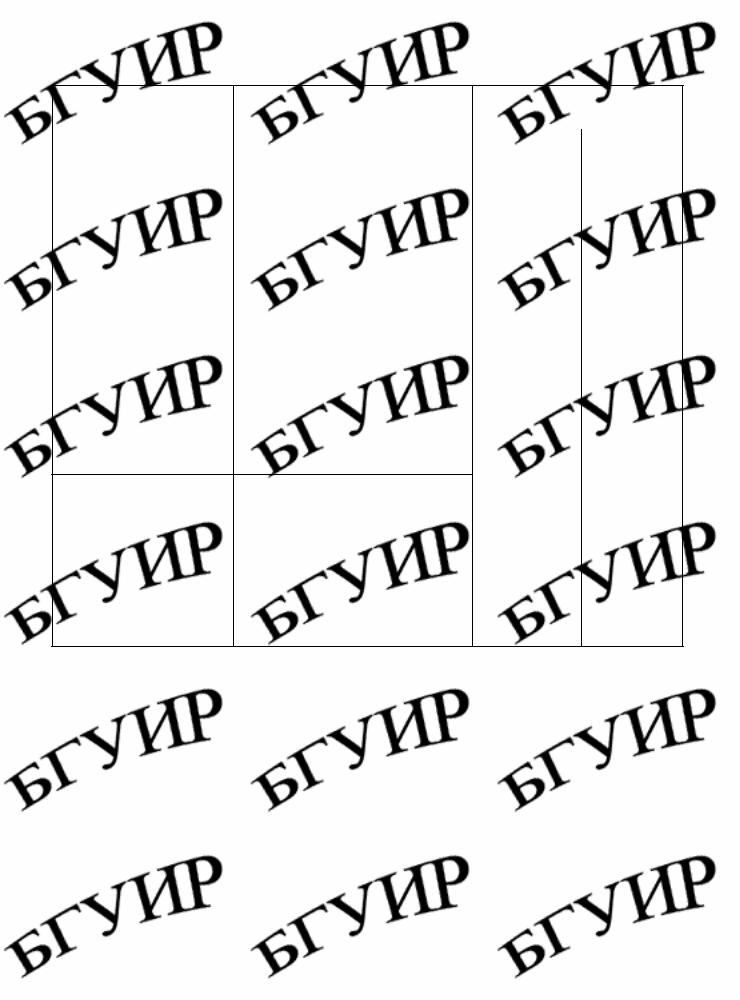
Наука_и_техника_Ч_1
.pdf
III.Which of the vocabulary units used in paragraphs 1, 2, 4 and 5 could be regarded as international words?
IV. Read the translation of the last paragraph. Compare it with the original and say if everything is right.
Одним из самых больших преимуществ электрической энергии является то, что она чистая, легко управляемая и не дает никаких побочных продуктов. В наше время электричество обеспечивает все сферы человеческой деятельности, от домашних стиральных машин до новейших лазерных устройств. Электричество является эффективным источником для самых последних технологических изобретений, таких как лазер и электронные лучи. Поистине электричество обеспечивает человечество энергией будущего.
V.Find the English equivalents of the following words and word combinations in paragraphs 4-7.
Новый компактный источник, первые электрические линии и сети, потребление электричества, особенные свойства электричества, мастерские по изготовлению изделий из серебра, наиболее широко используемое, по всему индустриальному миру, в конце прошлого века, заменил батареи и другие приборы, изобрести трансформатор, успешное развитие электричества
VI. Find passages about industrial applications of electricity and translate them into Russian.
VII. Choose a passage and read it aloud (1-2 minutes).
VIII. Find out the subject-matter and the means of its secondary expression. e.g. I like your report on electricity. It is made with great enthusiasm.
IX. Find key words, phrases and the topic sentences which express the general meaning of each paragraph best of all.
X. Using the information obtained from the paragraphs make a plan of the text.
XI. Speak about electricity and its applications using key words, phrases, the topic sentences and the plan of the text.
B.Text Study
I.Look at the title of the text. Make your predictions about the content of it. Read the text and answer the questions.
a)How is the problem of power supply for distant areas being solved at present?
b)What are the advantages of solar power?

Text B
SOLAR LIGHT BY NIGHT
Most people living in towns consider it a usual thing that streets are lit at night. But street lights need a power supply (источник энергии) therefore distant areas with no source of electricity remain in darkness until the sun comes up again.
With new appliances now offered by several British firms, many distant places could be lit with solar-powered street lights. It may seem strange that the lamps can use the power of the sun which shines by day when the lamps are needed at night, but they work by using energy accumulated during the day from a solar panel. The solar panel produces electricity which charges a battery. When the sun goes down the battery power is then used for lighting. Each lamp has its own panel so the system can be used for one individual light or a number of them.
In the south of Saudi Arabia a motorway tunnel miles from any power supply is lit day and night by solar-powered devices. The solar panels provide power during the day and charge batteries which accumulate enough power to light the tunnel at night. The generation of electricity by batteries is still expensive but the advantage of sun-powered lamps is that they can bring light to areas distant from any other power supply.
There is one more advantage of solar power: not only it is unlimited, but also its use does not pollute the environment. That is why it is very important to develop devices which make it possible to transform solar power into mechanical or electric forms of power.
II. Read the text and define whether the following statements are true or false.
1.Street lights do not need a power supply nowadays.
2.Distant areas with a source of electricity never remain in darkness.
3.With new appliances now offered by several American firms, many distant places could be lit with solar-powered street lights.
4.A motorway tunnel in Saudi Arabia is lit day and night by wind-powered devices.
5.The generation of electricity by batteries is rather expensive.
6.There is one more disadvantage of solar power: its use does not pollute the environment.
7.The development of devices which make it possible to transform solar power into mechanical or electric forms of power is very important.
III. Expand the sentences.
1.Distant areas with no source of electricity remain in darkness.
2.Several British firms have offered new appliances.

3.The lamps can use the power of the sun at night.
4.Each lamp has its own panel.
5.The generation of electricity by batteries is still expensive.
IV. Now decide which of the following statements express important ideas or supporting details for this reading.
1.a) Streets in cities, towns and some villages are lit at night.
b)Street lights need a power supply.
c)The sun does not shine at night.
2.a) Electricity is a source of light as well as heat.
b)Almost all metals are good conductors of electricity.
c)Several British firms have offered new devices using solar light.
3.a) No other source of energy has been so widely used as electricity.
b)The solar panel produces electricity which charges the battery.
c)Each lamp has its own solar panel.
4.a) Solar power is beneficial means of energy.
b)One of the advantages of solar power is that it doesn’t pollute the environment.
c)Sun-powered lamps can bring light to areas distant from any other power supply.
V.Find the words and word combinations – carriers of the primary and the secondary information in paragraphs 3 and 4.
VI. Define the function of commas and a colon in paragraphs 2 and 4.
VII. Find out the means of connection between clauses, parts of the sentence and sentences.
VIII.Arrange the sentences in the logical order according to the text.
1.Solar power is unlimited.
2.The solar panel produces electricity which charges a battery.
3.A motorway tunnel in Saudi Arabia is lit day and night by solar-powered devices.
4.Streets in cities and towns are lit at night.
5.The generation of electricity by batteries is still expensive.
6.Solar power does not pollute the environment.
7.Distant areas with no source of electricity remain in darkness.
8.When the sun goes down the battery power is then used for lighting.
IX. Give the main points of the text in 4-5 sentences.

C.Text Study
I.Translate the text into Russian.
Text C
NON-TRADITIONAL RENEWABLE SOURCES OF ENERGY
It is known that much is being done in the world today for the development of non-traditional sources of energy. Without them the Earth cannot support its present population of 5 billion people and probably 8 billion people in the 21st century.
Now we are using traditional power sources, that is oil, natural gas, coal and water power with the consumption of more than 50 billion barrels per year. It is evident that these sources are not unlimited.
That is why it is so important to use such renewable sources of energy as the sun, wind, geothermal energy and others. Research is being carried out in these fields.
One of the most promising (перспективный) research is the development of power stations with direct transformation of solar energy into electricity on the basis of photoeffect. It was Russia that was the first in the world to develop and test a photoelectric battery of 32,000 volts and effective area of only 0.5 sq.m., which made it possible to concentrate solar radiation. This idea is now being intensively developed in many countries.
However, the efficiency of a solar power station is considerably reduced because of the limited time of its work during the year. But it is possible to improve the efficiency of solar power station by developing different combinations of solar power stations and traditional ones–thermal, atomic and hydraulic. Today some engineers are working at the problem of developing electric power stations with the use of a thermal-chemical cycle. It will operate on products of the transformation of solar energy, whereas the “solar” chemical reactor uses CO2 and water steam of the thermal power station. The result is that we have a closed cycle.
All these advances in developing new sources of energy and improving the old ones help to solve the energy problem as a whole and they do not have negative effects on the environment.

|
Grammar Study |
|
Функции глаголов ‘should’ и ‘would’ |
||
|
|
|
Should |
|
Would |
1 |
|
2 |
1. Вспомогательный глагол, употребляемый в косвенной речи во временной форме Future – in – the Past (будущее в прошедшем).
I said that I should come in time. |
He said that he would come in time. |
Я сказал, что приеду вовремя. |
Он сказал, что приедет вовремя. |
2. Вспомогательный глагол, употребляемый в сослагательном наклонении. а) в условных предложениях
We should introduce this method if it were |
They would introduce this method if it |
efficient. |
were efficient. |
Мы бы внедрили этот метод, если бы |
Они бы внедрили этот метод, если |
он был эффективным. |
бы он был эффективным. |
б) в придаточных |
предложениях |
После оборотов it’s important (важно), |
После глагола ‘to wish’ |
necessary (необходимо), required |
I wish she would come soon. (impossible |
(требуется), desirable (желательно) и |
wish for a future change) |
др. that … |
Я хотела, чтобы она пришла |
It is necessary that you should finish your |
поскорее. |
work on time. |
(Жаль, что она придет нескоро) |
Вам необходимо заканчивать работу |
(нереальное желание, относящееся к |
вовремя. |
будущему). |
После глаголов suggest (предлагать), |
|
insist (настаивать),demand |
|
(требовать), recommend |
|
(рекомендовать) и др. that… |
|
He insists that you should do it at once. |
|
Он настаивает на том, чтобы вы это |
|
сделали немедленно. |
|
В обстоятельственных предложениях |
|
цели |
|
We took a taxi so that we should not miss |
|
the train. |
|
Мы взяли такси, чтобы не опоздать на |
|
поезд. |
|
|
в) в простых предложениях |
|
To go there would be useless. |
|
Идти туда было бы бесполезно. |

|
1 |
|
2 |
|
|
|
|
3. Модальные глаголы |
|
|
|
|
|
|
а) моральное обязательство, долг |
а) волевой акт, хотение (по |
|
|||
|
You should be always polite. You should |
отношению к прошлому) |
|
|
||
|
not tell lies. |
|
She was going away and would not tell us |
|
||
|
Следует всегда быть вежливым. Не |
where she was going. |
|
|
||
|
следует врать; |
|
Она уезжала и не желала сказать, |
|
||
|
б) неодобрение прошлых действий (с |
куда едет; |
|
|
||
|
перфектным инфинитивом) |
|
б) упорство, настойчивость |
|
||
|
You shouldn’t have done it. |
|
I asked him not to bang the door, but he |
|
||
|
Тебе не следовало это делать; |
|
would do it. |
|
|
|
|
в) совет |
|
Я просила его не хлопать дверью, но |
|
||
|
You should see a doctor. |
|
он все равно продолжал, |
|
|
|
|
Ты должен сходить к врачу (Тебе |
|
|
|
||
|
следовало бы сходить к врачу) |
|
|
|
|
|
|
г) естественное, ожидаемое |
|
|
|
|
|
|
действие. |
|
|
|
|
|
|
He should be at home now. |
|
|
|
|
|
|
Он, должно быть, сейчас дома. |
|
|
|
|
|
|
|
|
|
а также для повторяющихся |
|
|
|
|
|
|
действий и заведённого порядка (в |
|
|
|
|
|
|
прошлом) |
|
|
|
|
|
|
Grandma would always make me |
|
|
|
|
|
|
porridge for breakfast. |
|
|
|
|
|
|
Бабушка обычно варила мне кашу на |
|
|
|
|
|
|
завтрак (также: used to) (бывало) |
|
|
|
|
|
|
и в вежливых просьбах |
|
|
|
|
|
|
Would you / Would you mind…? |
|
|
|
|
|
|
Would you open the door, please? |
|
|
|
|
|
|
Не могли бы вы…? |
|
|
|
|
|
|
Не возражаете ли вы…? |
|
|
|
|
|
|
Не могли бы вы открыть дверь? |
|
|
|
|
Многофункциональные слова |
|
|
||
|
|
|
|
|
|
|
|
|
Предлог |
|
Союз |
Наречие |
|
|
|
1 |
|
2 |
3 |
|
|
|
(+существительное, |
- в придаточных предложениях |
в конце |
|
|
|
|
местоимение, |
времени |
предложе- |
|
|
|
Since |
герундий) |
We haven’t seen him since he |
ний |
|
|
|
|
не употребляется в |
moved to Moscow. |
We haven’t |
|
|
|
|
начале предложения |
Мы не видели его с тех пор, как |
seen him |
|
|
|
|
We haven’t seen him |
он переехал в Москву |
since. |
|
|
|
|
since the end of the |
- в придаточных предложениях |
С тех пор |
|
|
|
|
week. |
причины |
мы его не |
|
|
|
|
Мы не видели его с |
Since the lunchroom was full, she sat |
видели. |
|
|
|
|
(конца) прошлой |
at our table. |
|
|
|
|
|
недели. |
Так как в столовой было много |
|
|
|
|
|
|
людей, она села за наш столик. |
|
|
|

|
1 |
2 |
3 |
For |
Выражает: |
в придаточных предложениях |
|
|
1) время |
причины |
|
|
I shall stay there for |
We can’t start the engine for there is |
|
|
some days. |
no fuel in the tank. |
|
|
Я остановлюсь там на |
Мы не можем завести двигатель, |
- |
|
несколько дней |
т.к. в баке нет бензина. |
|
|
2) цель |
|
|
|
This story is written for |
|
|
|
children. |
|
|
|
Этот рассказ написан |
|
|
|
для детей |
|
|
|
3) цены |
|
|
|
for 20 dollars |
|
|
|
за 20$ |
|
|
|
4) причину |
|
|
|
for many reasons |
|
|
|
по многим причинам. |
|
|
|
|
|
|
|
|
1) в придаточных предложениях |
He works as |
|
|
времени |
an |
|
|
As the train was approaching the |
engineer. |
|
|
station, we went to the platform. |
Он |
|
|
Когда поезд подходил к станции, |
работает |
|
|
мы пошли на платформу. |
инжене- |
|
|
2) в придаточных предложениях |
ром. |
As |
|
причины |
|
|
As it was getting dark, I took the |
|
|
|
|
tram. |
|
|
|
Я поехал на трамвае, т.к. стало |
|
|
|
темнеть. |
|
|
|
3) в придаточных предложениях |
|
|
|
образа действия |
|
|
|
She did exactly as I told her. |
|
|
|
Она поступила именно так, как я |
|
|
|
ей сказал. |
|
|
|
4) в придаточных предложениях |
|
|
|
сравнения |
|
|
|
We were going up the road as fast |
|
|
|
as we could. |
|
|
|
Мы шли по дороге так быстро, |
|
|
|
как только могли. |
|
|
|
|
|
|
|
В придаточных предложениях |
|
|
|
причины |
|
|
|
They couldn’t start the experiment |
|
Because |
|
earlier because all the necessary |
|
|
|
equipment hadn’t been installed. |
|
|
|
Они не могли начать |
|
|
|
эксперимент раньше в связи с |
|
|
|
тем, что было установлено не |
|
|
|
все необходимое оборудование. |
|

|
1 |
2 |
3 |
Because |
|
We have chosen this woolen |
|
of |
|
sweater because of its good quality. |
|
|
|
Мы выбрали этот шерстяной |
|
|
|
свитер из-за его хорошего |
|
|
|
качества. |
|
|
|
|
He came as |
|
|
|
well as |
As well |
|
|
John. |
|
|
Он пришел, |
|
as |
|
|
так же как |
|
|
|
и Джон. |
|
|
|
(Пришел |
|
|
|
он, а |
|
|
|
также |
|
|
|
Джон) |
As to |
They inquired as to the |
|
|
|
actual reason of his late |
|
|
|
arrival. |
|
|
|
Они осведомились о |
|
|
|
(настоящей) причине |
|
|
|
его опоздания. |
|
|
Due to |
This is due to the raise |
|
|
|
of temperature. |
|
|
|
Это происходит из-за |
|
|
|
(благодаря) |
|
|
|
повышения |
|
|
|
температуры. |
|
|
to be due to (predicative – именная часть сказуемого)
Flight BA 502 from Miami is due to arrive in a few minutes.
Ожидается, что самолет рейсом ВА-502 из Майами приземлится через несколько минут.
Следующие союзы употребляются в начале придаточных предложений: а) причины:since, for, as, because; б) времени: since, as;
в) образа действия: as.
Both…and…, either…or…, neither…nor… .
Данные союзы связывают части сложносочиненного предложения либо однородные члены в простом предложении.
I am fond of music, both ancient and modern. My sister and I both helped him.
Either I or he will go. Neither he nor I went.
Я увлекаюсь музыкой, как старинной, так и современной.

Как моя сестра, так и я помогли ему. Уйдет либо он, либо я.
Ни он и ни я не пошли.
Сослагательное наклонение
Глаголы в сослагательном наклонении выражают желаемое, предполагаемое или нереальное действие. В современном английском языке синтетические формы сослагательного наклонения, совпадающие с инфинитивом, употребляются редко. Чаще употребляются аналитические формы, состоящие из модальных глаголов ‘should, would, may, might’ и инфинитива. Для того, чтобы выразить нереальное действие, используется ’смещение времени’ – глаголы в прошедшем времени выражают нереальное действие в настоящем, а формы Past Perfect – в прошлом.
Сослагательное наклонение обычно употребляется в придаточных предложениях после оборотов “it is necessary, it is required” и др.; в дополнительных придаточных предложениях после глаголов ‘order, command, suggest, insist’, а также глагола ‘wish’; в обстоятельственных придаточных предложениях цели и нереального условия.
It is required that pupils should come in time.
I suggest that you should read it yourself.
I wish I had that book.
We wished they would tell us everything.
Write down all these words lest you should forget them.
If you were more attentive, you’d study better.
Требуется, чтобы учащиеся приходили вовремя. Я полагаю, тебе следует прочесть это самому. Жаль, что у меня нет этой книги Жаль, что они не рассказали нам обо всем.
Запиши все эти слова, чтобы не забыть их.
Если бы ты был более внимательным, ты бы учился лучше.

Условные предложения
Типы условных |
Ситуация / условие |
Союзы / союзные |
|
предложений |
|
слова |
|
1. Изъявительное |
реальное условие, |
If |
если |
наклонение |
относящиеся к |
unless |
если не |
|
настоящему, |
even if |
даже |
|
прошедшему или |
but for |
если |
|
будущему времени; |
in case etc |
если бы |
2. Сослагатель- |
нереальное условие |
… |
не |
ное наклонение |
1) невероятное |
|
в случае |
|
действие, относящееся |
|
при |
|
к настоящему или |
|
условии, |
|
будущему времени |
|
что |
|
2) маловероятное, но |
|
и т.д. |
|
возможное действие; |
|
|
а также употребляется в предложениях, выражающих совет;
3. Сослагатель- нереальное условие, ное наклонение относящееся к
действию, не имевшему места в прошлом, хотя и возможному, а также используется для выражения сожаления, критики, неодобрения.
Придаточное предложение условия, предшествующее главному предложению, отделяется запятой. Существуют также смешанные типы условных предложений. Вероятны любые комбинации временных форм глаголов, в зависимости от контекста. Например: If she had finished it yesterday, she wouldn’t be doing it now.
Если бы она закончила это вчера, то не делала бы это сейчас.
Во всех трех типах условных предложений союзы / союзные слова: if, provided и др. могут быть опущены. В придаточном предложении встречаются такие глаголы, как had, were, could, might, should. В
таком случае имеет место обратный порядок слов.
Например: Если он придет, то пусть подождет меня. - Should he come, let him wait for me.
Если бы она была специалистом в данной области, мы бы показали ей новую установку. – Were she a specialist in this field, we should show her the new installation.
